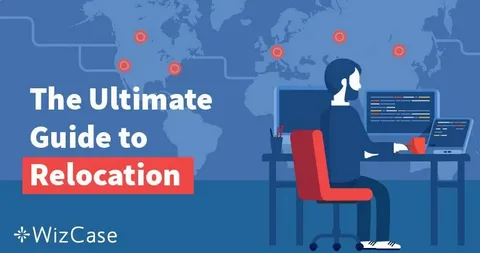Relocating internationally is often seen as a fresh start, whether for work, family, or lifestyle change. But beyond the excitement lies one of the biggest challenges expats face: adjusting financially to a new country. The cost of living, exchange rates, taxes, and even everyday spending habits may differ dramatically from what you’re used to. Just as hiring a Flyttfirma Bunkeflostrand helps ensure the physical side of relocation runs smoothly, preparing for financial adjustments ensures your long-term success abroad.
Why Financial Adjustment Matters
A move abroad is not just about shipping boxes — it’s about rebuilding your entire financial ecosystem. Without proper planning, unexpected costs can quickly eat into savings and create stress. By understanding the new environment and creating a clear strategy, you can thrive financially while enjoying the adventure of your new life.
Step 1: Research Cost of Living
Before moving, compare expenses such as housing, transportation, groceries, and healthcare in your destination. Online cost-of-living calculators and expat forums provide real-world insights that help you budget more accurately.
Step 2: Open Local Bank Accounts
Banking fees for using foreign cards can add up. Opening a local account reduces transaction costs, makes bill payments easier, and allows for direct deposits if you’re employed.
Step 3: Manage Currency Exchange Wisely
Exchange rate fluctuations can significantly impact your income or savings. Consider using multi-currency accounts, exchange services with lower fees, or fixed-rate transfers to protect your budget.
Step 4: Work With Professional Movers
Financial stress often comes from unexpected moving expenses. Choosing apartment movers or international relocation professionals can reduce the risk of damaged goods, hidden fees, and delays. Reliable movers give accurate quotes and handle logistics, preventing you from overspending due to last-minute problems.
Step 5: Learn Local Shopping and Saving Habits
Embrace how locals save money. From shopping at neighborhood markets to using public transport or energy-efficient practices, adopting local habits can significantly cut expenses.
Step 6: Understand Tax Obligations
Taxes can be complicated when living abroad. Research whether your home country requires you to file, in addition to your host country. Consult an international tax advisor to ensure compliance and avoid penalties.
Step 7: Track Spending Diligently
In the first few months, track every expense. This helps you identify patterns and adjust your budget. Apps designed for expats can provide insights into where your money goes.
Step 8: Build an Emergency Fund
Unexpected medical expenses, job changes, or travel emergencies can occur. Having a dedicated emergency fund in local currency ensures you’re prepared for surprises.
Step 9: Review Housing Choices
Housing often represents the largest expense. Decide whether renting, buying, or using company housing best fits your financial goals. Avoid overspending on accommodations until you’re fully familiar with the market.
Step 10: Plan for Long-Term Investments
If you’re planning to stay abroad for years, explore investment opportunities in your host country. Research safe options such as retirement plans, savings bonds, or real estate to build wealth over time.
Common Mistakes to Avoid
- Assuming your home country’s budget will apply abroad.
- Using international credit cards without considering fees.
- Neglecting to understand tax rules in both countries.
- Failing to prepare for emergencies.
Benefits of Financial Adjustment
- Security: Greater control over income and expenses.
- Peace of mind: Less stress about unexpected costs.
- Savings: Ability to put money aside for future goals.
- Integration: Adopting local habits helps you feel more at home.
Conclusion: Build Stability for Long-Term Success
Adjusting financially after an international move is about more than numbers. It’s about creating a sustainable lifestyle in your new environment. By researching costs, managing banking wisely, working with professional movers, and tracking your spending, you can establish financial stability abroad.
Just as movers protect your belongings, your financial preparation protects your future. With discipline and foresight, your relocation can be both exciting and sustainable — a balance that allows you to truly thrive in your new country.



